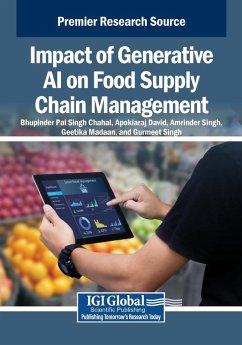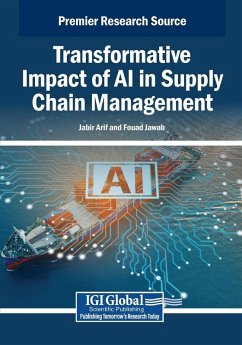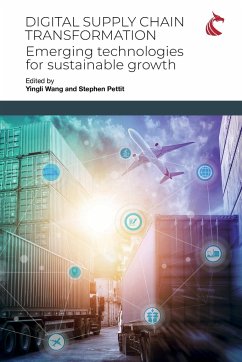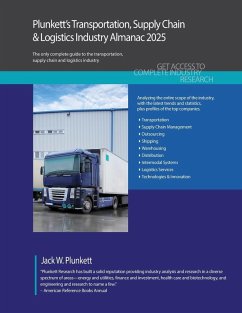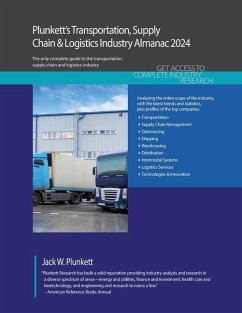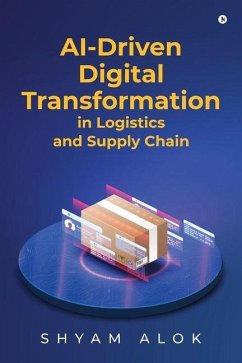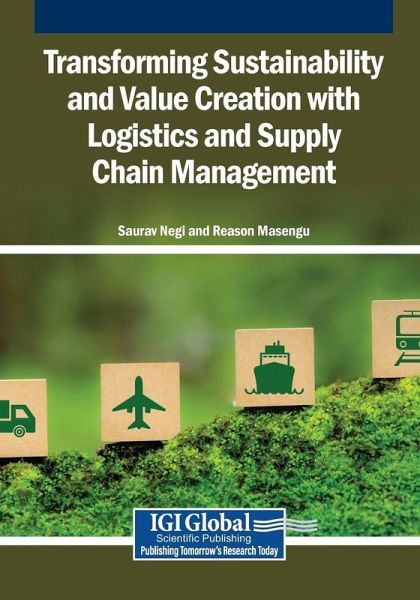
Transforming Sustainability and Value Creation with Logistics and Supply Chain Management
Versandkostenfrei!
Versandfertig in 1-2 Wochen
153,99 €
inkl. MwSt.

PAYBACK Punkte
77 °P sammeln!
Logistics and supply chain management (LSCM) play a major role in creating value for firms. It is not only helping business organizations grow but also leading to the development of the overall supply chain performance. In today's dynamic era, organizations need to manage their supply chain functions to be competitive in the market and gain sustainability. As the entire world is becoming a global village, managing logistics and supply chain functions effectively and efficiently is becoming more challenging for business organizations. Emerging areas in the supply chain such as sustainability, a...
Logistics and supply chain management (LSCM) play a major role in creating value for firms. It is not only helping business organizations grow but also leading to the development of the overall supply chain performance. In today's dynamic era, organizations need to manage their supply chain functions to be competitive in the market and gain sustainability. As the entire world is becoming a global village, managing logistics and supply chain functions effectively and efficiently is becoming more challenging for business organizations. Emerging areas in the supply chain such as sustainability, agile supply chain, artificial intelligence (AI), Internet of Things (IoT), and blockchain technology are gaining huge interest from researchers as well as practitioners. Transforming Sustainability and Value Creation with Logistics and Supply Chain Management provides comprehensive insights into the LSCM practices that are enabling firms to achieve competitiveness and long-term sustainability through value creation in supply chains. It addresses the need for increased logistics and supply chain knowledge with the changing scenarios in the business world due to increased globalization, changing customer demand, rapid change in technology, sustainability issues, and supply disruption risks. Covering topics such as demand forecasting, exploitation, and user experience (UX), this book is an excellent resource for logistics specialists, supply chain managers, marketing specialists, executives, professionals, researchers, scholars, academicians, and more.



